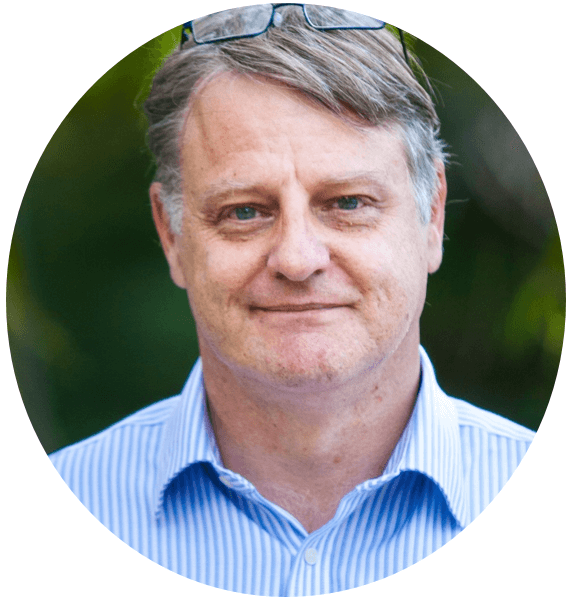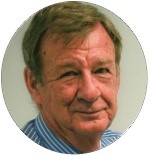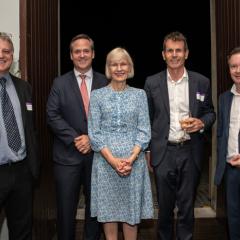Innovative UQ Centre for Natural Gas research showcased at Annual Research Review 2019
Some 180 people attended the UQ Centre for Natural Gas Annual Research Review in December. Numbers were up this year with the increased interest in natural gas because of the role it is flagged to play in the coming energy transition.
The 2019 UQ Centre for Natural Gas Annual Research Review was opened by Executive Dean of UQ's faculty of Engineering Architecture and Information Technology, Professor Vicki Chen. UQ Centre for Natural Gas Director, Professor Andrew Garnett, then took to the stage to give an update of the year in review. He finished the keynote address with an insider’s look at traction achieved by the Centre throughout the year. This was followed by portfolio roundups from Centre research Chairs and chief investigators, focussing on the research areas of groundwater, social performance, geoscience and petroleum engineering. The audience was updated on the current status of the Centre's research portfolio, including highlights from throughout the year and insights into future perspectives.
A highlight of this year’s event was a panel session which delved into the role of gas in the energy transition. The energy mix needed to achieve greater supply of affordable power and lower emissions is a complex and evolving area. It is a topical area for Australia, whose gas resources create the potential for the country to be a major global supplier of natural gas to help meet the increasing demand for cleaner, affordable energy over the transition decades to a low emissions future.
The group then divided up for topically themed concurrent sessions. This year's workshops included a look at the latest research on the Great Artesian Basins, the challenges of technical communication, and a session on the Walloons Springbok interface titled when is an aquifer not an aquifer?
Each year's Research Review includes posters displaying the work of research teams and students working on Centre funded projects as well as independent PhD students researching natural gas related issues.
The research posters, presentation deck and summaries of sessions are available for download below.
Presentations
1. Research Review: presentation deck (pdf)
2. Research Review: panel session summary
3. Concurrent workshops: workshop summaries (pdf)
Posters
Research challenge #1: Reducing operating expenditure
- Computational modelling of counter-current multiphase flows
- Prediction of flowing bottom hole pressure (FBHP) using advanced data analytics
- Enhancing CSG well production through flowing bottom hole pressure (FBHP) control
- Nano-mechanics of coal
- Screening of solvents and polymers for phase inversion to inhibit clay swelling of mudstone
- Swelling inhibition of bentonite clay by Mg(OH)2 precipitation using different Mg salts
Research challenge #2: Heterogeneity and connectivity
- Perfectly matched layer for the solution of acoustic wave equation using finite elements
- Proxy modelling for horizontal well coal seam gas production
- Determining dissolved methane in groundwater of the Surat and Bowen Basins
- Surface movement and shallow processes
- Impacting factors on horizontal coal seam gas well production and proxy model comparison
- Spectral decomposition of the heterogeneous Springbok Sandstone and Walloon Coal Measures in the Surat Basin, Australia
- New geostatistics to model heterogeneity – The Copula Plug-in
- Modelling the contribution of individual seams to coal seam gas production
- Trends in seismicity in the CSG producing region of the Surat Basin in Queensland
- Automatic 3D geological modelling with ArcGIS Engine: A new approach for surface and subsurface data integration
- Rapid geological modelling for the Surat Basin based on well logs
- An AVO-friendly noise-filtered stretch-free reflection-based multimodal optimisation based non-hyperbolic approach to moveout analysis and stacking (a showcase of results)
- Preliminary study of reservoir properties of the Toolebuc Formation, Eromanga Basin
- CO2-water-rock reactions of low-salinity aquifer and oil field drill cores
- Characterisation of Surat Basin interburden, and overlying sandstone
- Models to demonstrate the importance of geological correlations
- Modelling the contribution of individual seams to coal seam gas production
- First geological interpretations of gas content of coal seam field, Cesar sub-basin, Colombia
Research challenge #3: Converting contingent resources to commercially recoverable resources
- Sustainable enhancement of CSG production in Queensland
- Damage and fracture analysis of rock under uniaxial compression
- Increasing the productivity of unconventional gas reservoirs via graded proppant injection (GPI)
- Advanced environmental technologies for coal permeability enhancement
- Pressure-dependent contact angle of coal
- Development of predictive models and go-forward strategies for micro-particle injection in naturally fractured reservoirs
- Sorption and swelling of coal under unconstrainted conditions
- Using machine learning methods to identify coals from drilling and logging-while-drilling (lwd) data
- Optimisation of dewatering rates to maximise coal seam gas production
Social
Program
Annual Research Review 2019
UQ Advanced Engineering Building, Conference Room 200
12 December 2019, 12:30 pm - 6:00 pm
| 12:30 pm | Welcome | ||||||||
|
Address from the Executive Dean |
|
Prof Vicki Chen |
|||||||
|
01:10 pm The year in review |
|||||||||
|
Achievements & traction throughout 2019 |
|
Prof Andrew Garnett |
|||||||
|
01:30 pm Research portfolio |
|||||||||
|
|
Geosciences Prof Suzanne Hurter |
|
Water Assoc Prof Phil Hayes |
||||||
|
|
Petroleum Engineering Dr Christopher Leonardi |
|
Social Dr Kathy Witt |
||||||
|
02:10 pm Panel: What is the role of gas in the transition (and for that matter what is the transition) |
|||||||||
|
|
Statutory authority |
|
Industry |
||||||
|
|
Industry |
|
Energy research expert |
||||||
|
02:50 pm Afternoon tea & student posters |
|||||||||
|
03:20 pm Concurrent workshops |
|||||||||
|
OPTION A |
|
OPTION B |
|
OPTION C |
|||||
|
Led by |
|
Led by |
|
Led by |
|||||
|
04:30 pm Closing |
|||||||||
|
04:45 pm Canapes on level 5 |
|||||||||
|
|
|||||||||
The research into Australian natural gas is only made possible by vital funding provided by the industry (Arrow Energy, APLNG and Santos) and the University of Queensland.
The University of Queensland Centre for Natural Gas (formerly known as the Centre for Coal Seam Gas) conducts real-world research focussed on optimising Australia’s natural gas industry terms of environmental performance, social performance, and optimisation of cost of operation and production (which in turns affect both availability and market price). With natural gas flagged to play a major role in reducing emissions over the next 20-30 years as the world transitions to renewables and low carbon energy solutions, the role of research and innovation in gas has a key part to play in the portfolio of other growing energy sources. Australia’s abundant gas resources create the potential for the country to be a major global supplier of natural gas to help meet the increasing demand for cleaner, affordable energy over the transition decades to lower emissions. The UQ Centre for Natural Gas provides cutting-edge, multi-disciplinary research and advice in the sustainable development and management of Australia's abundant natural gas resources.










